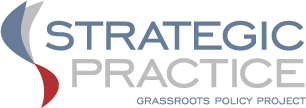Financial Tricks and Treats
Venture, if you dare, into our little shop of horrors, with plenty of frights and scares to turn your American dream into a nightmare.
Exhibit A: Last year's Halloween Party at a major mortgage-related firm featured costumes and props designed to mock the victims of foreclosures. The firm, Steven J. Baum, represents banks and mortgage servicers when they foreclose on homeowners and evict them from their homes. This kind of callous behavior speaks volumes about the mindset that prevails in many financial institutions.
Not scary enough for you? I dare you to lift up the cover on this next exhibit and take a peek. You'll find Citigroup quietly paying a fine to settle a case involving designed to fail mortgage-backed securities. You see, Citibank deliberately created collateralized debt obligations that were based on bad mortgage loans (one trader described them as 'something your dog leaves on your neighbor's lawn'), sold them to unsuspecting investors, then bet against those same securities. Citi made $160 million while investors in other firms lost hundreds of millions. The good news is, this dastardly deed was finally investigated by the S.E.C. The bad news is, Citi is not admitting to any wrongdoing. And they are hoping no one will notice.
Around this corner, you'll find various representatives of big business, including the Chamber of Commerce, attacking the National Labor Relations Board (NLRB) for doing its job. The case that has them all up in arms concerns Boeing. Unionized workers have alleged that Boeing retaliated against them, and they had enough evidence to warrant a hearing. Instead of allowing the NLRB to investigate the matter, big business is attacking the agency in every way possible, including getting their friends in Congress to slash funding for the NLRB by 20 percent. For more on this story, check out the latest blog from Kimberly Freeman Brown, from American Rights at Work.
This next exhibit could get ugly. Or at least oil-stained. It involves a huge energy conglomerate, a proposed pipeline that stretches from the tar sands of Canada down into New Mexico, a bevy of industry lobbyists and the State Department. A couple of months before the Occupy encampments, thousands of people traveled to Washington to protest the Administration's attempts to fast-track approval of the Keystone XL pipeline. The protestors included scientists (scary bunch, them) who warn of dire environmental consequences if this pipeline is built. Bill McKibben, one of the hundreds of protesters who got arrested, raises the specter of cronyism: apparently, the State Department has been working hand in glove with TransCanada lobbyists to get approval for the Keystone XL project. And it looks like they have succeeded. McKibben poses a truly frightening question: "If this is happening in the State Department, why should we not assume it's also going on in the Treasury Department's dealings with the big banks, and just about everywhere else in government?"
And for your Halloween viewing entertainment, Margin Call is a really scary movie that captures the brutality of everyday life at a Wall Street firm. A O Scott describes Margin Call as "a tale of greed, vanity, myopia and expediency." The film dares to treat the 1% who work in high finance as fallible, corruptible human beings. No one is patently evil, but no one is innocent, either. The film opens at the start of a frenetic 24-hour period in which the fictional firm has to make a game-changing decision. A couple of risk analysts have just discovered that a majority of their assets are about to turn toxic, thanks to the firm's over-reliance on highly lucrative and extremely volatile mortgage-backed securities. What will they do? Come clean, warn others, and help restore some balance to the financial system? Or will they try to push their toxic assets onto unsuspecting investors? We know the answer already; the suspense in the film lies in depicting how each character responds to the revelations about how overly-leveraged they are --- and especially, how passive most of them become in a system where one must dance as long as the music is playing. It is a dance macabre.
Is it any wonder, then, that ordinary people have been moved to take extraordinary actions to reclaim our democracy and rebuild our economy? Like these post-modern Robin Hoods in the heartland. And here, you can see the Robin Hoods out in force on Wall Street, making the case for a financial transaction tax. This Halloween, you'll find many ways to support local actions aimed at taking back our economy. We want less tricks, more treats.

